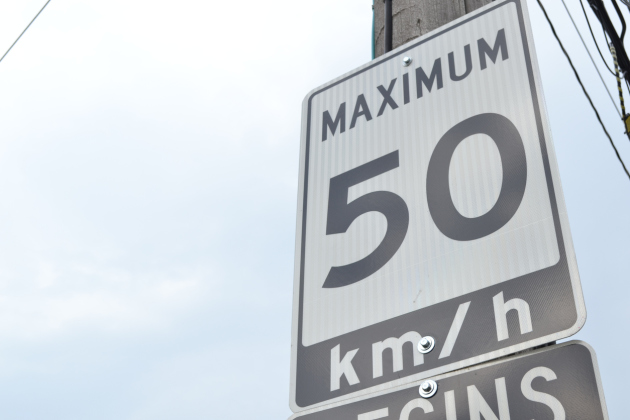Speeding to be focus of Safe Driver Week

GREENBELT, Md. – Enforcement teams will turn their focus to speeding during Commercial Vehicle Safety Alliance’s (CVSA) Operation Safe Driver Week, scheduled July 14-20.
“For more than two decades, speeding has been involved in nearly 1/3 of all motor vehicle fatalities,” said CVSA president Jay Thompson. “That is unacceptable, especially because it’s preventable. We will continue to educate the public on the dangers of speeding and we will identify individuals who are speeding on our roadways and may issue citations as a deterrent to future speeding tendencies and to affect driver behavior.”
This year’s Safe Driver Week will be promoted with a theme of “Late won’t kill you, speeding will.”
Speeding was a contributing factor in 26% of all traffic fatalities in 2017, the U.S. National Highway Traffic Safety Administration (NHTSA) reports. Driver actions also contributed to 94% of all traffic crashes, its 2015 Traffic Safety Facts says.
According FMCSA’s 2016 Large Truck and Bus Facts, speeding of any kind was the most frequent driver-related crash factor for drivers of commercial motor vehicles and passenger vehicles. And the Insurance Institute for Highway Safety Highway Loss Data Institute says speeding has been a factor in about one in four crash-related deaths since 2008.
During last year’s Operation Safe Driver Week, speeding citations were handed out to 1,908 commercial vehicle drivers and 16,909 drivers at the wheels of passenger vehicles. Another 17 commercial drivers and 714 passenger vehicle drivers were cited for driving too fast for conditions.
But speeding won’t be the sole focus of Operation Safe Driver Week. Enforcement teams will also be tracking other dangerous behaviors including distracted driving, texting, failing to use a seatbelt, following too closely, improper lane changes, reckless or aggressive driving, failing to obey traffic control devices, and evidence of drunk or drugged driving.
A 2014 study demonstrated that traffic tickets can make a difference, noting that a 1% increase in seatbelt-related citations led to a 0.28% drop in crashes, as well as reducing the number of crash-related non-fatal injuries.
“As unpopular as traffic citations are among drivers, we know that driver behavior does respond to contacts with law enforcement and warnings and citations,” Thompson said.
Have your say
This is a moderated forum. Comments will no longer be published unless they are accompanied by a first and last name and a verifiable email address. (Today's Trucking will not publish or share the email address.) Profane language and content deemed to be libelous, racist, or threatening in nature will not be published under any circumstances.
Pay drivers by the hour to maxim speed of 60 mph with average speed of 50 MPH